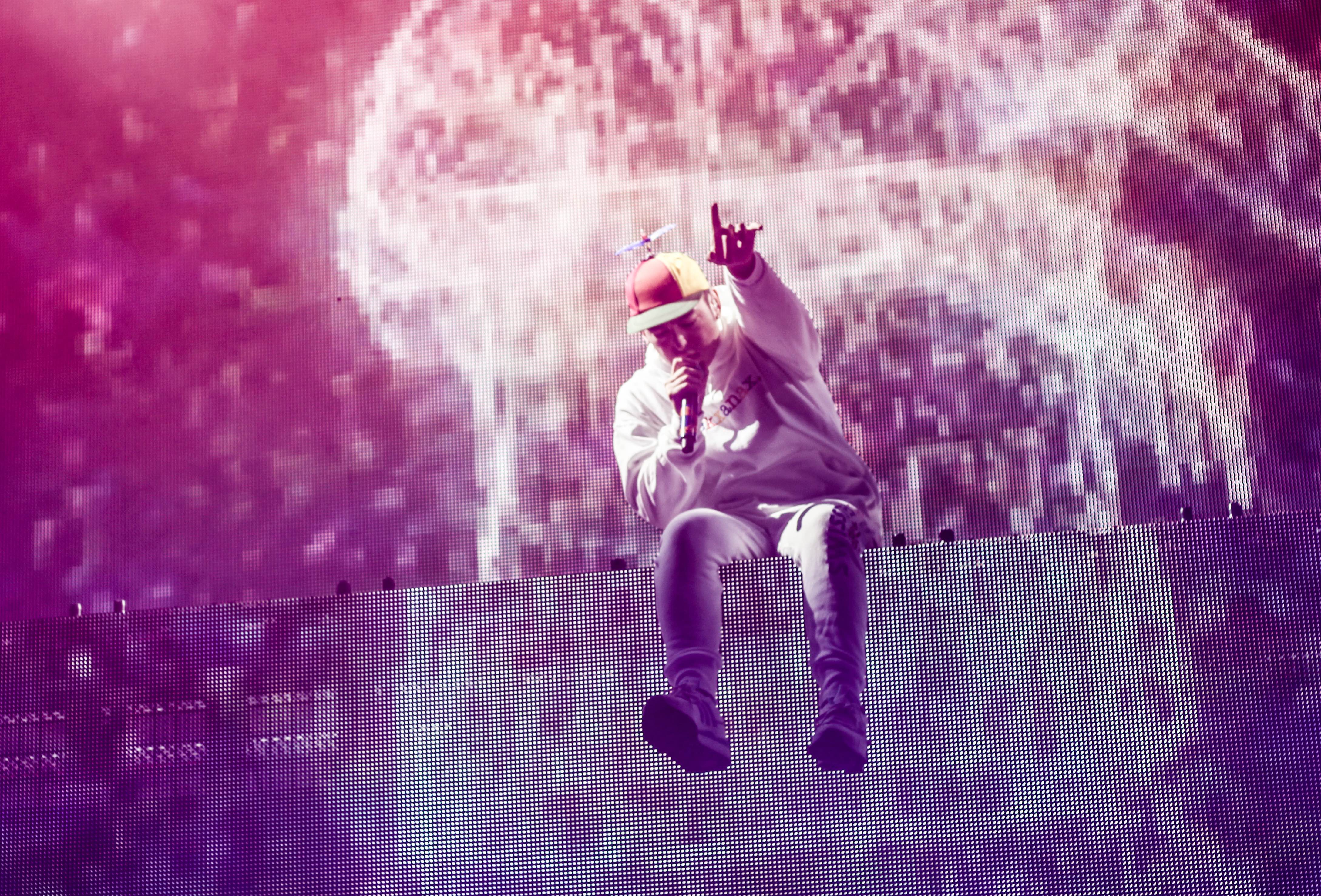Asian-American rap label establishes itself in hip hop culture
88rising, stylized 88⬆, landed in Montreal on Oct. 1 for the fourth pit-stop on their new 88 Degrees & Rising Tour. Spanning 18 cities, this is the band’s first tour across North America since the release of their compilation album Head in the Clouds, on July 20. Clouds played towards—and some would say capitalized on—a “midsummer” feeling. With warm and energetic sounds, 88rising made a colourful summer album that is as playful as it is popular, with their track “Midsummer Madness” reaching 37 million streams on Spotify since its release.
Characterizing 88rising isn’t an easy task. Founder Sean Miyashiro has emphasized the group’s diverse array of functions such as acting as a record label, serving as a marketing engine primarily for Asian artists and media production. From representing hip hop artists such as Higher Brothers and Rich Brian, to the more genre-ambiguous music of Joji and NIKI, to making videos and putting on concerts, 88rising is an interesting entity, regardless of definition.
What makes 88rising so interesting in its ascent into the mainstream is how pertinent the discussion of Asian representation is in western media. At a time where representation is so central to our globalized cultural milieu, 88rising finds itself both speaking to, and speaking for Asian expats and immigrants, and for those back in the mainlands.
The crowd stood in the dark, being softly lit by the golden, glowing outline of 88rising. It was quite stirring to see such diversity in the crowd, evidence that 88rising had connected on a cultural level to many of those present. Japanese hip hop artist KOHH and Chinese rap boyband Higher Brothers got the crowd jumping with material that wasn’t necessarily in their native language.

The crew performed viral tracks such as “It G Ma”, in which KOHH is featured rapping in Korean alongside Keith Ape who raps in Japanese, and “Made in China” by the Higher Brothers which neatly blends a mix of English and Mandarin. It was abundantly clear that the energy 88rising brought with them transcended language barriers. The soft sounds of NIKI and Joji cut in between the more hip hop-oriented members of 88rising revealed a crowd that swayed as swiftly and gracefully as they had moshed aggressively to the genre-bending beats of Rich Brian.
The artists let their personalities speak out unapologetically. Rich Brian’s background visuals during his set spoke to his old roots on YouTube and in comedy as a young Brian Immanuel. He included closeups of his face with expressions that were equal parts painful and hilarious. Joji’s arresting lyrics were perhaps best captured when he poignantly asked the audience, “Are you sad tonight?” NIKI set an aspiring agenda to remind us to move forward in her song “Warpaint.” The Higher Brothers straight up set the stage on fire.
88rising raises compelling questions concerning culture and context—are there elements of cultural appropriation in what they do? This is difficult to answer. Consider Rich Brian—at age 15, homeschooled and a comedian, taught himself to speak English by listening to hip hop and watching YouTube videos. By this metric, Rich Brian was raised by hip hop. Nonetheless, what is he standing to gain as an Asian artist engaging in the culture of a historically black art form?

88rising is starting to embed itself as a deep influence in a new demographic of hip hop fans, one that is inclusive of Asian people from all over the world. Is it apt to suggest that, as we become more globalized, cultural emphasis will be placed, not on where one is from, but instead shift towards caring about what people share or have in common? This is a pleasant sentiment. These artists are making music influenced by the music they feel a connection to, inspired by their own journeys—just like every artist.
There is an honesty to 88rising that addresses the visibility of Asian influence in hip hop and in western pop music culture more generally. 88rising will remain in the conversation as a pioneer in its fusion of eastern and western influences and audiences. The question remains—where will they try to lead this culture?




